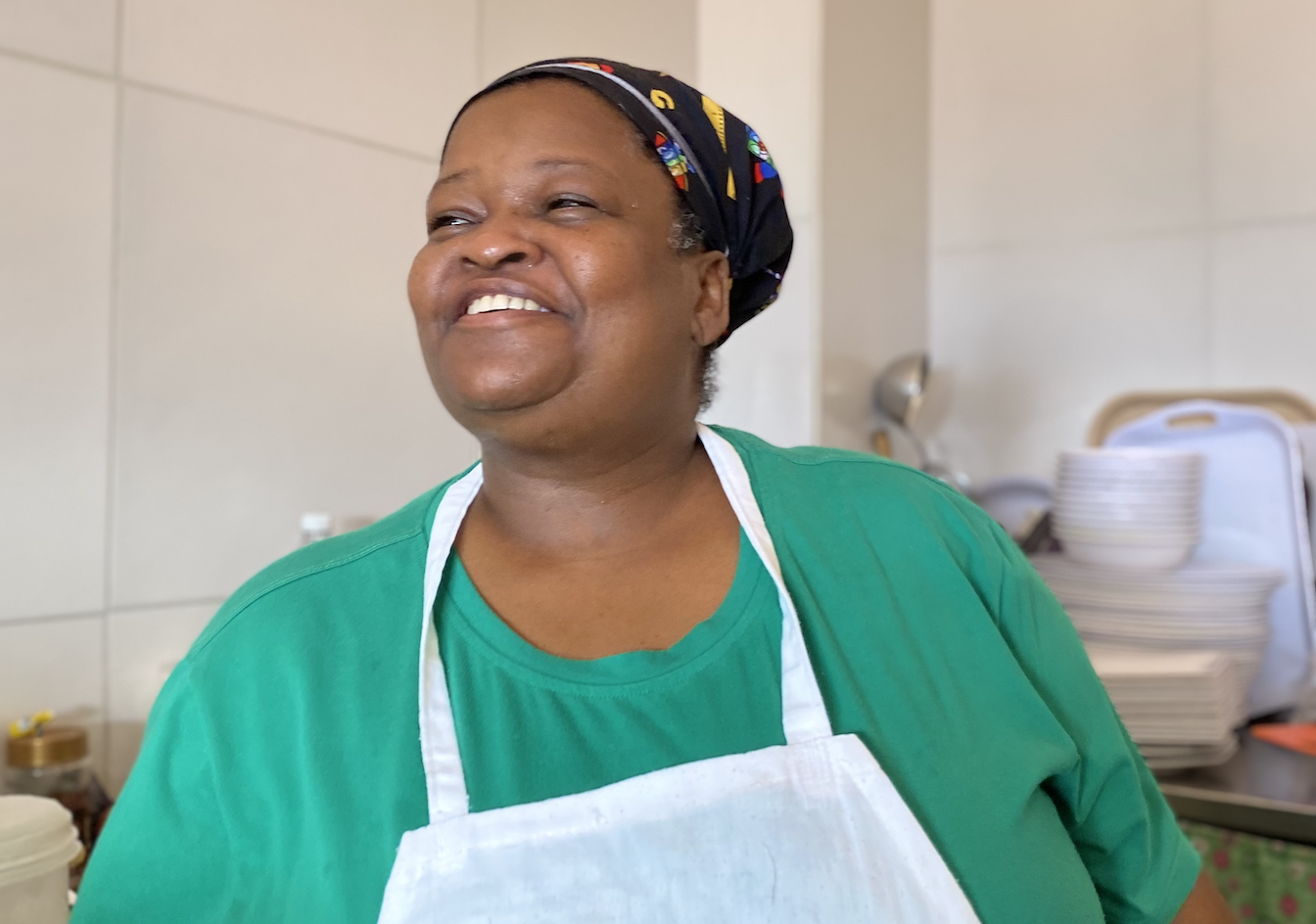Travel insights from Latin America
Author Ana Cristina Velez | Posted on August 7, 2025
True travel is all about stories.
While news headlines often speak of overtourism harming communities, we want to share a story of hope and an example of tourism doing good.
For this we head to Colombia’s second biggest city, Medellin, and into Comuna 3, Manrique – a vibrant district in the northeast that, while lesser-known to tourists, is alive with street art and community-led projects.
There we meet a remarkable lady whose love for home-cooked (and delicious) cuisine shines a light on how tourism can help bring growth and genuine positivity to a community.
A kitchen and a slowly cooked dream
Telma Ovidia Palacios is an entrepreneur originally from Chocó, a region on the Pacific Coast of Colombia, now living in this neighbourhood.
Since the early 90’s, Telma has been trying to forge a better life, working between Urabá and Medellín, and pouring her energy, passion, and talent into her food business.
Her intentions have always been to support and provide her family, and so she made the decision to come to Medellín. With the help of a cousin and the blessing of her mother, she started a new chapter, one where she could bring the rich flavors of her birthplace to this new community through a small family restaurant.
Today, visitors and groups can enjoy a delicious and authentic local meal by booking in advance, not because of long lines or crowds, but because Telma works on demand; she cooks meals in order to avoid food waste and to make sure every dish is fresh, meaningful, and adapted to dietary needs.
In her restaurant Chocó con Amor, she also offers traditional fried snacks (fritos) from Chocó – such as carimañolas, empanadas, patacones con queso.
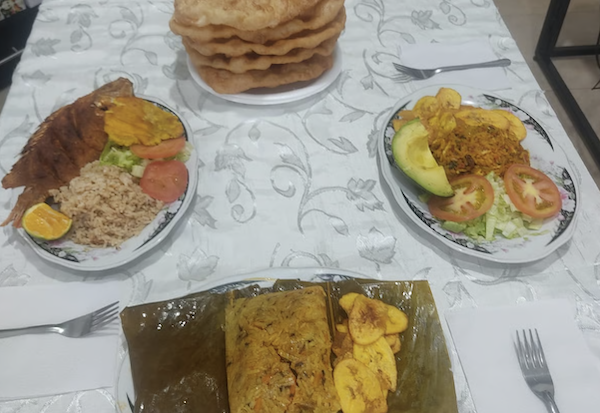
(Dishes served in Telma’s restaurant)
Locals stop by after attending the church service next door and it’s a highlight of everybody’s week – buying plates of these tasty bites and dipping them into her homemade guacamole (smashed avocado), ají (spicy condiment) and suero costeño (fermented-milk-based condiment).
Imagine a big pot where you add ingredients one by one to make something truly special—that’s what this restaurant means to Telma.
It’s a dream she’s been slowly building, pouring into it all her love and hope. It gives meaning to her life, inspires her, and brings her deep satisfaction. As she told us in her own words:
“Every time feels like the first time for me… Whenever I have to cook for them (guests), I wake up really early. Honestly, I go to bed floating in love the night before.”
Telma told us, while preparing the kitchen for cooking.
“I wake up, take a shower, and start preparing those pots with all the love I have, just thinking I hope they like it, I hope it turns out well, I hope they enjoy this food… I always put my heart into making sure people enjoy the food. That’s the most satisfying thing for me.”
Seizing the chance to help out
It was through Mary Luz Atehortua —our other incredible partner in Comuna 3, that we first met Telma.
Kagumu was looking for local projects and initiatives to support, beyond bringing tourists to visit them. We knew the best way was to ask local people for their guidance and when we spoke to Mary she immediately thought of Telma .
At that time, she was cooking on a tiny, two-burner stove, which made it a struggle when she was preparing food for groups—she had to cook some things in one place, others elsewhere, constantly moving heavy, hot pots up and down, all while worrying about safety and the danger of getting burnt.
Mary suggested that a new stove could make a real difference—not only in terms of safety but also by helping Telma attend to visitors (both locals and tourists) more comfortably and confidently, to grow her business more easily and continue to develop this lifelong project.
We really liked the idea, and once we had found a stove that matched Telma’s needs and preferences we sent it to Chocó con Amor, thinking of the quantities of delicious carimañolas, empanadas, and patacones con queso that would be cooked up on these stoves!
We asked her to share with us—in her own words—what this stove could mean for her. She wrote us a heartfelt letter; a letter that we found so touching that it inspired us to write this story.
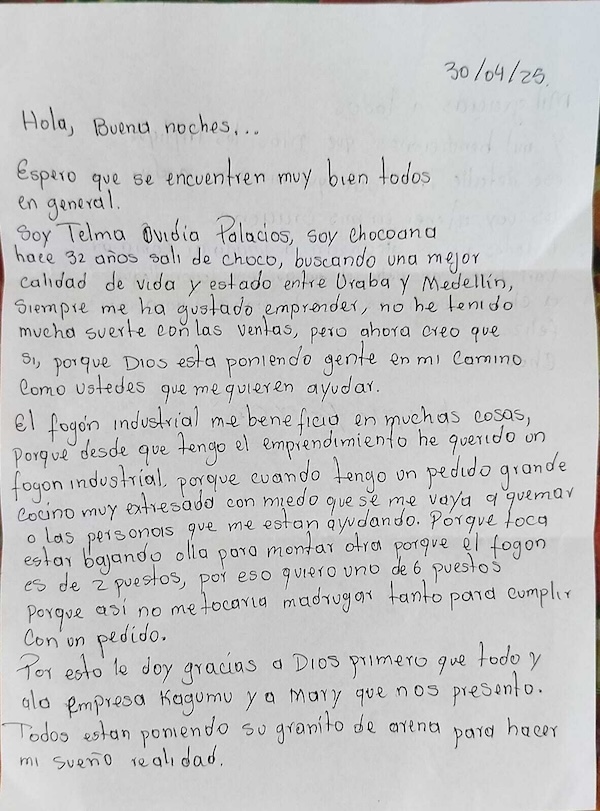
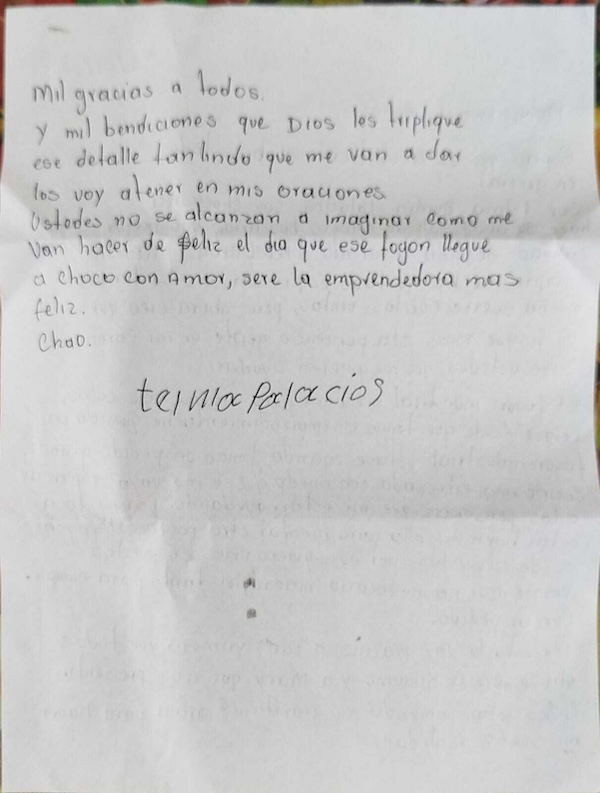
(Telma’s letter written to Kagumu)
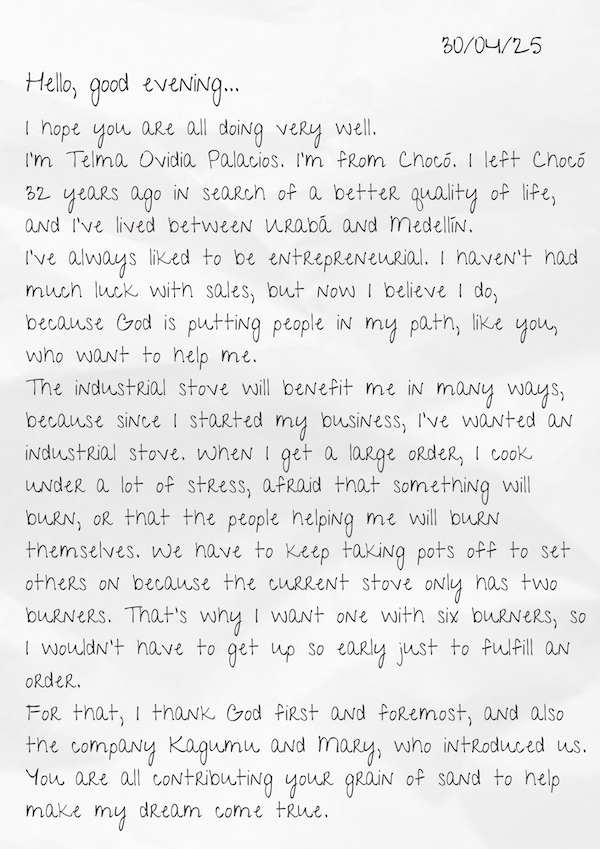
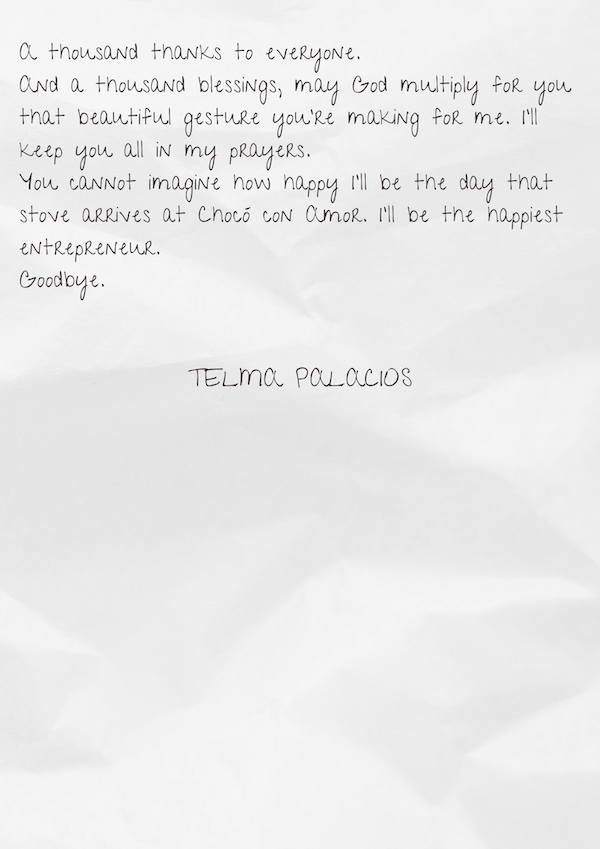
(Telma’s translated letter written to Kagumu)
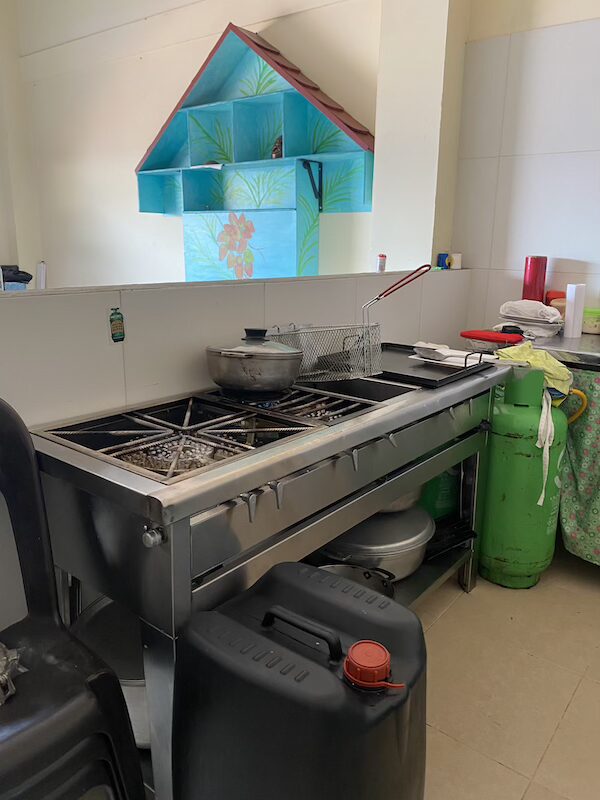
(The new stove in Telma’s restaurant)
This is more than just a kitchen upgrade, it is an investment in her livelihood, her peace of mind, and her ability to continue sharing her culinary talents with the world and with our travelers!
A new ability to serve others
Now with the industrial stove she can continue dreaming big for her family’s local business. Now, she’s giving herself permission to dream:
“To be honest, with the other businesses I’ve tried, I never really had any support, but here, I have. And for me, that means a lot. I feel like people truly care about me and want to help.” Telma said. “They’re supporting me because they want to see me grow.”
While she cooked us a delicious lunch, we asked her about her vision for Chocó con Amor:
“Ufff… you know what? One day I was here cooking and talking with the priest, and suddenly this thought just came to me, that one day, so many people are going to come here.” She said.
“So I asked him: Father, if one day a lot of people come, would you let me set up some tents up there so I can feed them all? And he said: Why not? Just give a little commission to the church and we’re good.”
For us at Kagumu, this is what regenerative tourism means: a symbiotic relationship rooted in respect and reciprocity.
It’s about listening to local voices, creating meaningful relationships, responding to real needs, supporting, amplifying and providing tools and resources to those who make our travel experiences unforgettable.
We want to thank Telma for reminding us of the power of persistence and the power of community, and also to our travelers and partners whose support helps us seize the opportunity to act.
Story researched and written by Ana Cristina Velez, Camila Giraldo, and Bernie Coote.

